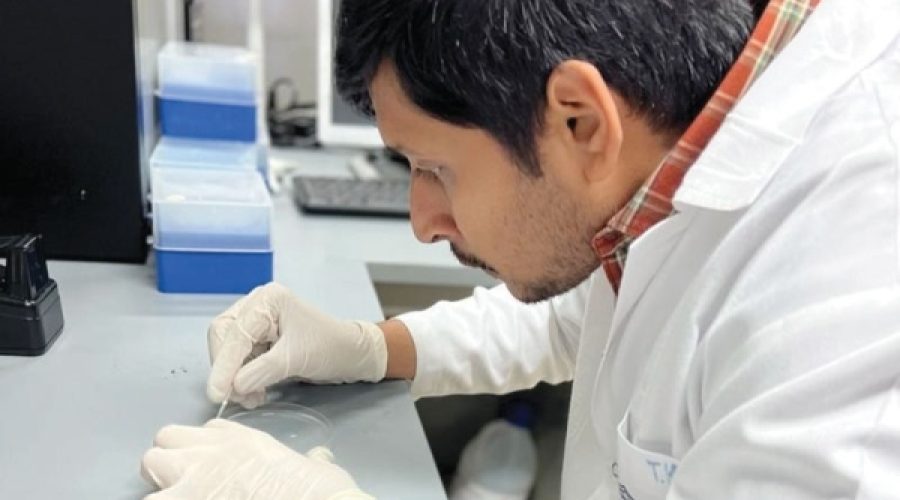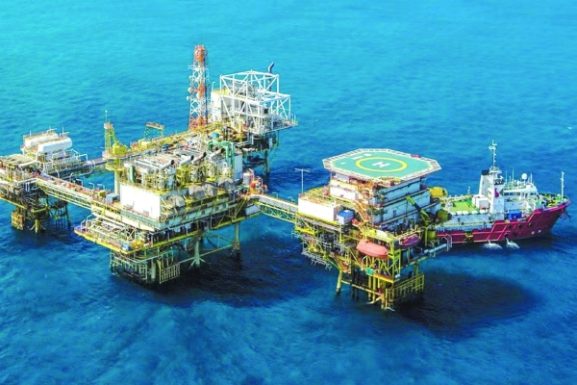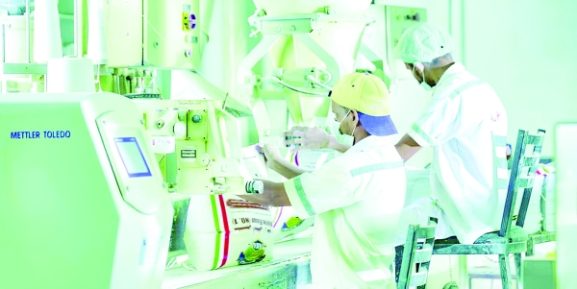New Study on Heavy Metal Pollution: What It Means for Business Sustainability and Investment Opportunities in Oman
MUSCAT, OCT 11 – In a notable advancement for environmental safety in Oman, a young researcher at Sultan Qaboos University (SQU) is conducting groundbreaking research on the use of locally sourced microbial mats to treat wastewater contaminated with hexavalent chromium [Cr(VI)], a highly toxic byproduct of industrial and mining operations in the country.
Dr. Mohammad Tariq Ali Khan, a PhD candidate specializing in geomicrobiology, highlights that his work, once scaled and commercialized, could offer a cost-effective and environmentally friendly local solution to decontaminate groundwater polluted with Cr(VI) in Oman.
“Cr(VI) is among the most dangerous metal ions widely used in industries and frequently released into the environment,” Dr. Khan explained. “Mining activities have significantly increased groundwater contamination by Cr(VI) in Oman, posing severe environmental risks and direct harm to living organisms. Microbial mats collected from chromium-polluted water bodies in Nakhal, Al Batinah South Governorate, can eliminate Cr(VI) from wastewater through biosorption and bioreduction. Notably, the biosorption technique shows great potential for industrial scale applications.”
Dr. Khan further elaborated that his research focuses on two key areas: the mechanisms by which microbial communities detoxify Cr(VI) in both aerobic and anaerobic conditions, and the effectiveness of dead microbial mats as biosorbents for Cr(VI) removal. His work is supervised by Professor Raeid Abed, Head of the Department of Biology at SQU.
Microbial mats are complex, layered communities of microorganisms such as bacteria and algae, thriving in extreme environments. Acting as natural bioreactors, these mats metabolically convert toxic Cr(VI) into the less harmful trivalent chromium (Cr(III)). Their robustness makes them ideal candidates for treating heavy metal-contaminated wastewater—a critical challenge in industrial regions. This environmentally sustainable approach aligns with the necessity for effective pollution control to safeguard environmental health.
Dead microbial mats, especially those composed of algae, provide a low-cost and efficient method for capturing chromium from wastewater. Their cell walls can naturally bind Cr(VI) without requiring nutrients or upkeep, unlike living mats.
“This simple, passive technique is sustainable and scalable, suitable for industrial wastewater treatment and reducing heavy metal pollution. It can also complement active remediation methods, creating a dual strategy for contamination management,” added Dr. Khan.
Importantly, Dr. Khan’s research supports Oman Vision 2040 by promoting environmental sustainability and climate change mitigation through innovative local methodologies.
“My study addresses a critical environmental issue—wastewater contamination—using an eco-friendly, sustainable bioremediation method with microbial mats. By reducing heavy metal pollution, it contributes to Oman’s objectives of protecting natural resources and mitigating climate change impacts, since clean water is essential for resilient ecosystems,” he said.
Dr. Khan recently presented his findings at the International Society of Microbial Ecology (ISME-19) conference in Cape Town, where global experts recognized the potential for scaling bioremediation techniques for industrial use. He noted that this acknowledgment underscores the scientific and strategic significance of his research for Oman’s environmental priorities.
Looking ahead, Dr. Khan is focused on optimizing these methods for practical field applications in Oman, where industrial wastewater management presents increasing challenges. His objective is to develop scalable, eco-friendly solutions for heavy metal pollution that support both local and global sustainable wastewater treatment efforts.
Special Analysis by Omanet | Navigate Oman’s Market
This pioneering research on using microbial mats to treat heavy metal-contaminated wastewater presents a transformative opportunity for Oman’s industrial sector to adopt cost-effective, eco-friendly pollution control. Businesses should consider investing in scalable bioremediation technologies aligned with Oman Vision 2040’s sustainability goals, which can mitigate environmental risks and enhance compliance with emerging environmental regulations. For entrepreneurs and investors, leveraging this innovation could position them at the forefront of sustainable industrial wastewater management, unlocking growth in green technology markets.



